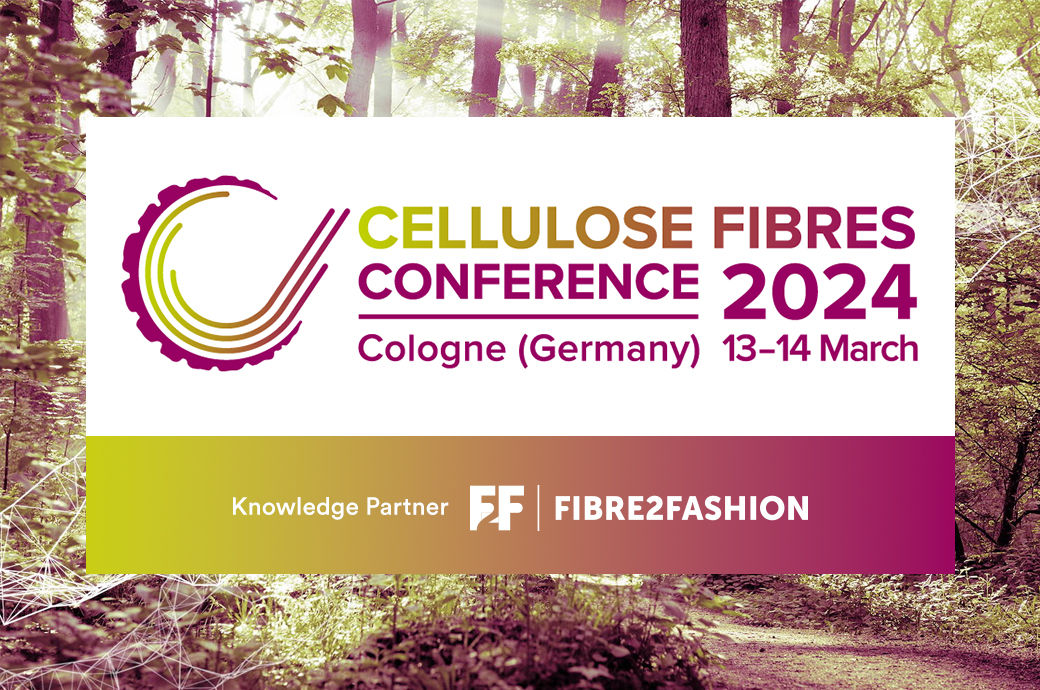
The shortlisted nominees showcase a range of sustainable and innovative solutions across various sectors. The products include cellulose fibres created from textile waste and straw, a novel technology for dyeing cellulose-based textiles, and a unique construction panel, along with advanced geotextiles for glacier protection.
The conference participants, including industry experts and enthusiasts, will vote for the innovations, with the top three winners being honoured with the award, Nova-Institute said in a press release.
In addition to the award ceremony, the conference will cover topics beyond traditional textile applications, focusing on cellulose-based nonwovens, packaging, and hygiene products. Key themes such as sustainability, fibre-to-fibre recycling, and alternative fibre sources will be explored, highlighting the economic potential and environmental benefits of the cellulose fibre industry.
The nominees include Straw Flexi-Dress, developed by DITF & VRETENA (DE). It represents a fusion of design and sustainability, crafted using HighPerCell (HPC) filaments derived from unbleached straw pulp. These filaments, produced through environmentally friendly spinning technology, form the basis of a versatile knitted garment that can transition from workwear to streetwear. The dress can be split into two separate pieces—a top and a straight skirt, with the top also wearable with a V-neck front or back.
Honext Material (ES) introduces the Honext Board FR-B, a flame-retardant board made from 100 per cent upcycled industrial waste fibres from the paper industry. This innovative material is created through biotechnological processes, transforming paper sludge into a fully recyclable, lightweight, and high-performing board. Ideal for interior environments requiring fire safety, the board is non-toxic and features a carbon-negative footprint, achieving Cradle-to-Cradle Certified Gold and Material Health Certificate Gold Level version 4.0.
Lenzing (AT) addresses the urgent issue of glacier protection with its Lenzing Cellulosic Fibres. These fibres provide an eco-friendly alternative to synthetic fibre-based geotextiles, which have been effective in reducing glacier melt but contribute to microplastic pollution. In collaboration with the University of Innsbruck's Institute of Ecology, Lenzing conducted successful trials with Lenzing fibre-based geotextiles, demonstrating their potential in slowing down glacier melt without the environmental harm of microplastics.
Pangaia (UK) and Evrnu (US) have teamed up to produce the Renu Jacket, a landmark in advanced recycling for cellulosic textiles. The jacket, part of a limited edition run, is made entirely from Nucycl, a technology that recycles cellulosic textiles into new fibres. This innovation ensures the jacket is 100 per cent recycled and recyclable, demonstrating a significant step forward in sustainable fashion. The collaboration resulted in the world's first 100 per cent chemically recycled denim jacket, a groundbreaking achievement in material science.
VTT Technical Research Centre of Finland (FI) presents textiles made from easy-to-dye Biocelsol, revolutionising the dyeing process in the textile industry. By using chemically modified Biocelsol fibres, the process significantly reduces wastewater. The knitted fabric, made from viscose and Biocelsol fibres, is dyed post-knitting, allowing for darker shades using less dye and no salt. This innovation not only creates visually appealing textiles but also promotes environmentally friendly dyeing solutions.
TreeToTextile (SE) introduces a new generation of bio-based and resource-efficient fibre that offers an alternative to traditional materials like cotton, viscose, and polyester. The fibre, based on cellulose, combines the natural dry feel of cotton with the semi-dull sheen and high drape of viscose. TreeToTextile Technology emphasises low environmental impact, with minimal chemical, energy, and water usage, and a significantly reduced climate footprint. This innovation represents a sustainable and versatile option for the textile industry.
ALCHEMPro News Desk (DP)
Receive daily prices and market insights straight to your inbox. Subscribe to AlchemPro Weekly!